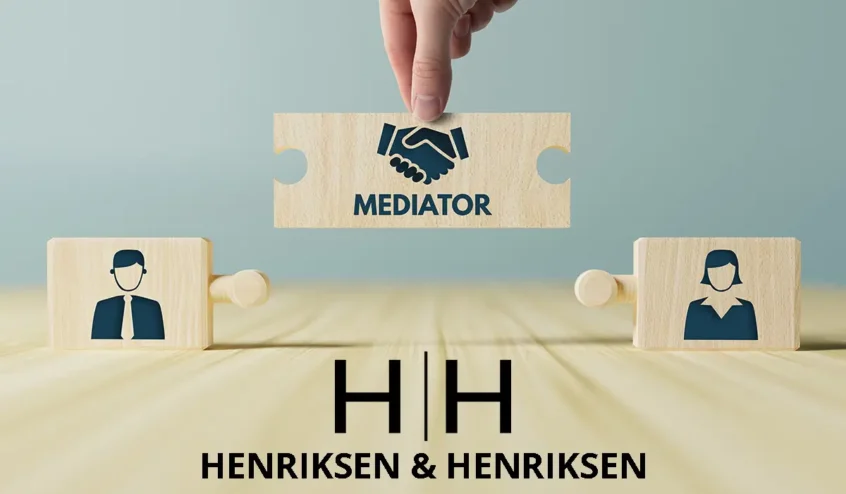Why Mediation Could Be the Best Solution for Your Family Dispute

Family disputes can feel like you’re caught in a never-ending storm—emotions running high, tensions mounting, and no clear solution in sight.
Many families, when dealing with tough issues like custody disputes, disagreements over inheritance, or making decisions about elder care, assume that going to court is their only option. Unfortunately, this can lead to lengthy and costly legal battles that drag on for months—or even years—leaving everyone emotionally drained, financially stretched, and frustrated.
But dealing with a family conflict doesn’t have to mean accepting this drawn-out, costly fate. There are several alternative dispute resolution (ADR) methods that can help save time, money, and stress. ADR is an umbrella term for a variety of formal and semi-formal resolution techniques that involve a neutral third party and can be used instead of litigation.
When it comes to resolving family-related disputes, family mediation is often the most effective and common option. Let’s find out why.
What is Family Mediation?
Mediation is a structured process where a neutral third party, called a mediator, steps in to help both sides find common ground. Instead of a judge deciding the outcome, you and your family get to work together- with your family law attorneys in Utah– to find a solution that works for everyone involved.
The family law mediator isn’t there to take sides or tell you what to do. Their job is to keep the conversation on track and make sure both parties feel heard. The whole idea is to create understanding and guide you toward a fair resolution. Since family disputes can get emotional, having someone to calmly steer the conversation can make all the difference.
The Benefits of Family Mediation
When you’re dealing with a family conflict, the last thing you want is for the situation to drag out, get more stressful, or become more expensive than it already is. Luckily, mediation offers a practical and affordable way to resolve family disputes.
1. It’s Faster Than Going to Court
If you’ve ever been involved in a court case or know someone who has, you know it can carry on for months—sometimes even years. Court schedules are often booked solid, and it can take forever just to get a hearing date, let alone resolve the entire case.
In contrast, mediation moves at a much faster pace. Sessions can be scheduled relatively quickly and often wrap up within weeks. For families looking to move forward, family law mediation offers a much quicker resolution.
2. It’s Less Stressful
Courtrooms are intimidating and overwhelming. The formal setting, legal jargon, and back-and-forth arguments can easily escalate an already tense situation.
Mediation, on the other hand, usually takes place in a more casual and comfortable environment. There’s no judge staring you down, no jury, and no need to impress anyone with legal speak. With mediation, you get a safe space for open discussion.
3. It’s Cost-Effective
Between hiring lawyers, court fees, and other legal expenses, the costs of litigation can add up fast. And if your family dispute is particularly complex, those fees can skyrocket.
Mediation is much more cost-effective. Since you’re avoiding the courtroom entirely, you save on hefty legal fees. Additionally, you don’t need to hire expensive lawyers or spend years battling it out; you can work through your issues in a series of sessions that cost a fraction of what litigation does.
4. It Encourages Open Communication
Unlike in court, where it often feels like you’re fighting to prove who’s right and who’s wrong, mediation allows both sides to be heard. You get to express your concerns, explain your needs, and listen to the other side.
By having the opportunity to voice your needs in a supportive environment, you’re more likely to walk away from the situation feeling understood. Furthermore, there’s a much better chance of resolving the issue without lingering bitterness.
5. It’s More Private
Court hearings are public, which means anyone can access the details of your case. For sensitive family matters, like custody arrangements or financial disputes, this level of exposure can feel uncomfortable. You may not want personal details aired for the world to see.
Mediation, however, is confidential. What’s discussed during the sessions stays between you, the other party, and the mediator. This discretion allows you to resolve your family dispute with a greater sense of privacy.
6. You Have More Control Over the Outcome
When a judge, who may not know you or fully understand your situation, decides what happens to your family, it can feel disempowering. Their decision might be based on legal facts, but it won’t necessarily reflect what’s best for your family on a personal level.
With mediation, the power is back in your hands. You and the other party get to work together to shape the outcome that suits everyone best. Because both sides are involved in finding a solution, the result often feels fairer and more personal.
When is Mediation a Good Fit?
Mediation can work for several types of family disputes, but it’s not the perfect solution for every situation.
So, when should you consider it?
1. Custody Disagreements
If you and your ex are struggling to agree on custody arrangements, mediation can help you find a balance that works for both of you and, more importantly, for the kids.
2. Divorce Settlements
Dividing assets and figuring out spousal support can get messy. Mediation helps you reach a fair agreement without turning it into a full-blown war.
3. Sibling or Extended Family Conflicts
Family dynamics are complicated. No matter what the situation is, mediation can help relatives work things out peacefully.
Mediation works best when both parties are willing to cooperate but just need help sorting through the details. Hence, if you’re open to compromise and ready to find common ground, family dispute resolution could be exactly what you need to move forward.
The Bottom Line
Mediation goes much deeper than just settling—it takes into account the relationships, values, emotions, and needs of everyone involved. Even more importantly, it considers indirectly affected family members, like children or new partners. It’s a more holistic approach that aims to find solutions that work for everyone, both inside and outside the room.
If you’re ready to resolve your family dispute without the stress and cost of court, Henriksen & Henriksen can help. Our experienced family law attorneys in Utah will guide you through the process, focusing on what truly matters—your family’s relationships, needs, and future.
Contact us today to know more!
